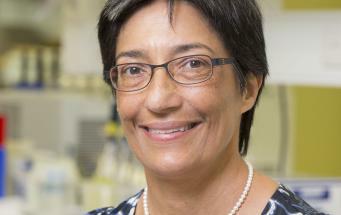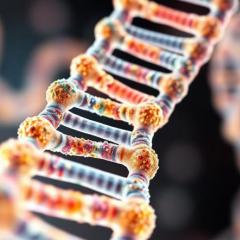
The development of novel immune therapies and vaccines in Brisbane and Perth has been awarded an $11.8 million program grant from the National Health and Medical Research Council.
A team of researchers, led by immunologist Professor Ranjeny Thomas from the University of Queensland Diamantina Institute, is developing new immune therapies to treat or prevent serious and debilitating diseases, including rheumatoid arthritis, transplant complications and diabetes.
Professor Thomas is working with immunologists Professor Ian Frazer (UQDI), Professor Geoff Hill (Queensland Institute of Medical Research) and Professor Maria-Pia Degli-Esposti (University of Western Australia), geneticist Professor Matthew Brown (UQDI) and microbiologist Professor Phil Hugenholtz (UQ’s Australian Centre for Ecogenomics).
Professor Thomas said the core team had been together for 10 years working on the immune therapies, some of which are in or approaching clinical trials.
“Immunologists produce vaccines and vaccines have had an enormous impact on human health through prevention of infectious disease,” she said.
“However there are still some infections that haven’t been conquered and these infections can be very difficult to eradicate, leading to chronic inflammatory diseases.
“Apart from the infections we encounter, microbes naturally colonise our gut, mouth, lung and skin. The composition of these changes our susceptibility to inflammatory non-infectious diseases, including arthritis, diabetes and skin cancer – all increasing clinical problems.
“We all know you can’t change your parents or the genes they passed on, but – amazingly – the microbes colonising the body are different in animals carrying risk genes for immune diseases and, what’s more, changing the organisms can change disease susceptibility.
“We are finding out how the genetics link to microbes in people, and how to make smart therapies and vaccines to prevent immune and inflammatory diseases using our microbial assistants in the future.”
Professor Brown, who is also the Diamantina Institute Director, said the grant would enable exciting research into how genetic and environmental factors interact to cause common autoimmune diseases and cancers such as rheumatoid arthritis, diabetes and skin cancer.
“This funding brings together a great team of researchers to investigate diseases for which current treatments are inadequate,” he said.
“The program of research is very likely to produce new treatments and changes in management for these conditions, which affect large numbers of Australians.”
MEDIA Contact: Kate Templeman, Communications and Marketing Manager, UQ Diamantina Institute, (07) 3443 7027, 0409 916 801 or k.templeman@uq.edu.au



